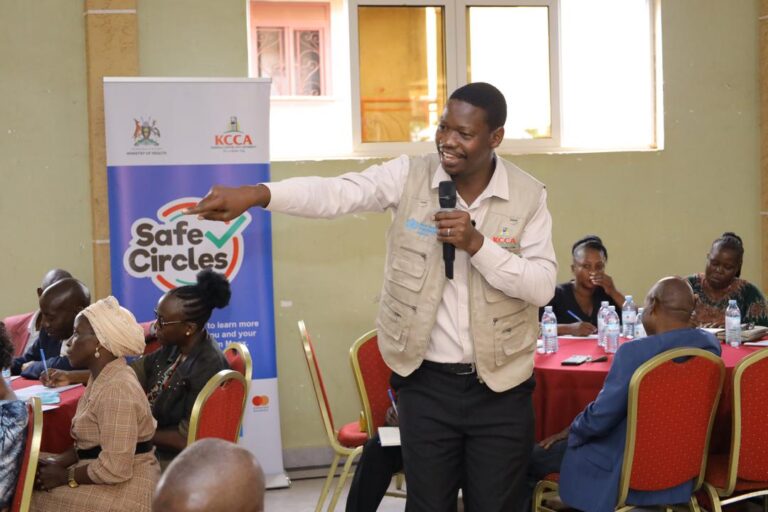Kampala Metropolitan Area is the epicenter of the Mpox virus spread in Uganda as per the report released on 21st January 2025 by the Ministry of Health. According to that report, Uganda has 2,115 cumulative Mpox cases and 10 deaths while Kampala Metropolitan Area has 1,433 cumulative cases since the first case was identified on 19th August 2025. Of these, 948 Mpox cases are from Kampala, 428 cases from Wakiso and 57 cases from Mukono district. Out of the 146 districts in Uganda, 74 of those have had confirmed cases, totaling to 51%.
Speaking during an Mpox sensitization training for ‘Abatongole ba Kabaka’ representing 133 villages of Buganda kingdom held at Pope Paul memorial in Rubaga Division in Kampala by Ministry of Health (MOH), Kampala Capital City Authority (KCCA) and UNICEF Uganda, Dr Buluma Denis Mike, District Medical officer – KCCA Rubaga Division said, ‘Kampala has the highest number of Mpox confirmed cases across the 5 Divisions: Kawempe (455); Makindye (201); Rubaga (122); Nakawa (97) and Central (73). The people at the highest risk of contracting Mpox are pregnant mothers, children below the age of 5 years, and people with immune compromising conditions such as HIV/AIDS, Diabetes and cancer among others.”
Dr Buluma added that if someone with Mpox remains within the community, they can spread the virus up to 30 people because it has an incubation period of 21 days.
“Within Kampala Metropolitan Area, sexual intercourse remains the leading cause of the spread of Mpox. I call upons all Ugandans to revive hand washing, sanitizing and vigilance to identify skin rashes, sore throats, fever, body aches, swollen lymph nodes and general body weakness.”
Ssalongo Ddungu Zikuza, Speaker Rubaga Division – Buganda Kingdom thanked MoH, KCCA and UNICEF Uganda for endeavoring to train the ‘Abatongole ba Kabaka’ from 133 villages, who will sensitize the communities under their jurisdiction, to ensure that awareness and vigilance for the Mpox virus is spread wider.”
Dr Buluma elaborated that anyone can get Mpox because it is spread through contact with infected persons, infected materials such as bedsheets and clothes, infected pregnant mothers who may pass it on to their unborn baby, shaking hands, sex, inhaling contaminated particles or viruses and contact with infected persons or animals.
Dr Buluma cautioned the general public to protect themselves from Mpox through hand washing, avoiding close contact with people, not touching or sharing personal items such as beddings, utensils and clothes and avoiding contact with or eating wild animals (alive/dead) and also accessing a vaccine for those people who have come into close contact with infected persons. Incase one is infected, they can heal within 2 weeks if dedicated early and treated.”
Mpox Community sensitization trainings are still ongoing especially amongst high-risk communities such as the business community, Bus, Taxi and boda-boda drivers/riders, market vendors, timber traders and sexual workers especially within Kampala Metropolitan Area using a campaign dubbed ‘safe circles’. The ‘Safe circles’ campaign will continue curbing Mpox spread by urging people to stay protected by not letting Mpox into their circles because small actions create lasting protection. More communities will continue to be sensitized.

